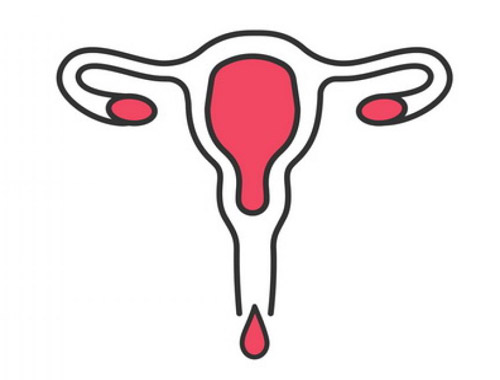Menstruation

Published: 18 Jun 2025
ICD9: 626.9 ICD10: N92.6 ICD11: QA21.4
Menstruation, also known as a period, is the monthly shedding of the lining of the uterus (womb) in women and people with uteruses.
It's a natural part of the menstrual cycle, which prepares the body for potential pregnancy.
Here's a breakdown of what happens:
![]() The Uterine Lining Thickens: Each month, the uterus develops a thick lining called the endometrium. This lining is rich in blood and nutrients, designed to nourish a fertilized egg.
The Uterine Lining Thickens: Each month, the uterus develops a thick lining called the endometrium. This lining is rich in blood and nutrients, designed to nourish a fertilized egg.
![]() Ovulation: Around the middle of the menstrual cycle, an egg is released from one of the ovaries. This is called ovulation.
Ovulation: Around the middle of the menstrual cycle, an egg is released from one of the ovaries. This is called ovulation.
![]() Fertilization or No Fertilization: If the egg is fertilized by sperm, it travels to the uterus and implants in the endometrium. If the egg is not fertilized, it disintegrates.
Fertilization or No Fertilization: If the egg is fertilized by sperm, it travels to the uterus and implants in the endometrium. If the egg is not fertilized, it disintegrates.
![]() Shedding the Lining: When pregnancy doesn't occur, the body no longer needs the thickened uterine lining. Hormone levels drop, causing the blood vessels in the endometrium to constrict. The lining then breaks down and is shed through the vagina as menstrual blood.
Shedding the Lining: When pregnancy doesn't occur, the body no longer needs the thickened uterine lining. Hormone levels drop, causing the blood vessels in the endometrium to constrict. The lining then breaks down and is shed through the vagina as menstrual blood.
Key things to know about menstruation:
![]() Timing: Periods typically start during puberty (around ages 10-16) and continue until menopause (around ages 45-55). The average menstrual cycle is 28 days, but it can vary from person to person.
Timing: Periods typically start during puberty (around ages 10-16) and continue until menopause (around ages 45-55). The average menstrual cycle is 28 days, but it can vary from person to person.
![]() Duration: A period usually lasts for 3-7 days.
Duration: A period usually lasts for 3-7 days.
![]() Symptoms: Many people experience symptoms before or during their period, such as cramps, bloating, mood swings, headaches, and fatigue. These are often referred to as premenstrual syndrome (PMS).
Symptoms: Many people experience symptoms before or during their period, such as cramps, bloating, mood swings, headaches, and fatigue. These are often referred to as premenstrual syndrome (PMS).
![]() Hygiene: During menstruation, it's important to use sanitary products like pads, tampons, or menstrual cups to absorb the menstrual blood.
Hygiene: During menstruation, it's important to use sanitary products like pads, tampons, or menstrual cups to absorb the menstrual blood.
![]() Irregularities: Sometimes, periods can be irregular, meaning they come at unpredictable times or are heavier or lighter than usual. This can be due to various factors, including stress, hormonal imbalances, or underlying medical conditions.
Irregularities: Sometimes, periods can be irregular, meaning they come at unpredictable times or are heavier or lighter than usual. This can be due to various factors, including stress, hormonal imbalances, or underlying medical conditions.
![]() Menopause: Menopause is the time in a woman's life when her ovaries stop releasing eggs and her menstrual periods stop permanently.
Menopause: Menopause is the time in a woman's life when her ovaries stop releasing eggs and her menstrual periods stop permanently.
If you have any concerns about your period or menstrual cycle, it's always best to consult with a healthcare professional.